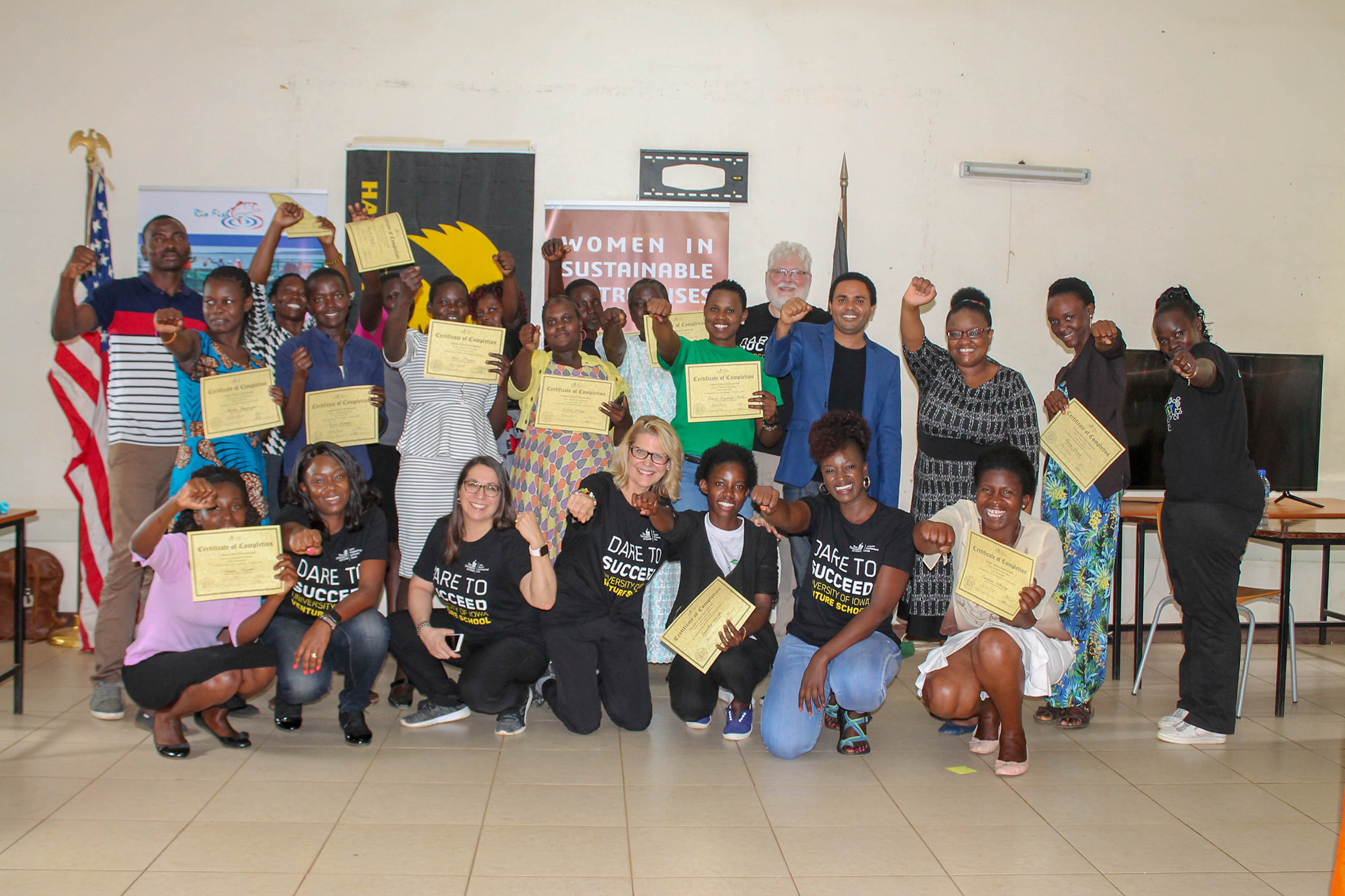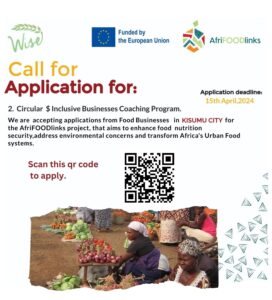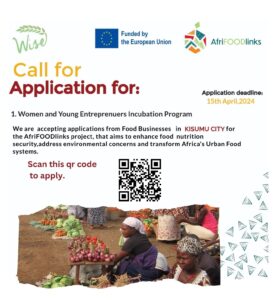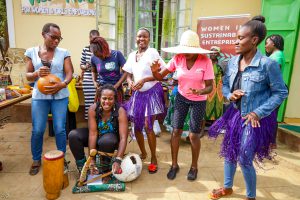Hawkeyes work to help end “fish for sex” trade around Kenya lake
A team of Hawkeyes is working to help end the “fish for sex” trade around a Kenya lake.
Two directors at the University of Iowa — Patrick Johanns and Kelly Bedeian — received federal funds to help train a group of 30 women living near Lake Victoria in Kenya on entrepreneurial skills and tools for breaking into the fishing business. The idea behind the project is to help women run their fish selling operations without being forced to rely on exploitative male fish suppliers.

The increasing scarcity of fish in the region has put female fish traders in a vulnerable position, say activists like Caroline Odera, founder of the Kenya-based organization Women in Sustainable Enterprises. Odera describes the “fish for sex” trade that has proliferated the region as a menace.
“Over the recent years, fish has been on the decline from the lake due to overfishing and climatic changes, among others,” Odera wrote to the Press-Citizen in an email. “This has resulted in the women fishmongers being subjected to sexual exploitation and transactional sex practices to get fish in order to resale for their daily income.”
Odera is collaborating on the training with Johanns, UI’s director of Part-time Business Analytics Graduate Program, and Bedeian, assistant director at UI’s Institute for International Business.
Funding for the project comes from the U.S. Department of State’s new Citizen Diplomacy Fund, administered by the Partners of the Americas organization. Money from the fund is awarded for public service projects to past participants of government-sponsored exchange programs.
In a proposal for the grant, Johanns and Bedeian said they would introduce women to a new app, called AquaRech, which promises to connect fish traders with a vetted network of fish farmers, cutting out the middleman, fish suppliers. The app was designed by Dave Okech and completed at the University of Iowa’s six-week Venture School.
In the proposal, applicants said the app was expected for release in October 2019. In an email to the Press-Citizen, however, Okech said the app is still under development and is expected to be released in April 2020.
Okech describes the app as something like “Uber Fish.” When finalized, fishmongers can use their smartphones to buy fish directly from the farmers. The idea is that direct access will cut the cost of the fist for the traders and give women access to information about the fish farmers.
As Okech explains it, the app works in part because fish farmers themselves see the benefit. They would like to get higher prices for their fish by cutting out the middle man.
“Women bore the biggest brunt because they had to succumb to the sex for fish trade in order to access fish,” Okech said. “Yet genuine fish farmers were also struggling to reach them.”
The app is just one piece of training. Odera estimates the most effective way to help the fish trade in Kenya is through multiple training opportunities, not just one. She’s hopeful her partnership with UI staff will continue in years to come.
“I believe in ‘teaching people how to fish,’ not giving,” Odera said. “Because in that way, they are empowered with knowledge for self-reliance and they get ignited to think beyond the box and do things differently.”
–
This article was First Published Here



